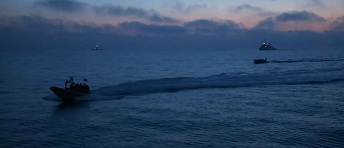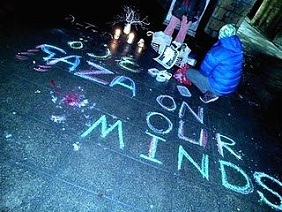Dueling UN Flotilla I Commissions
A number of earlier articles discussed the UN Flotilla I Commissions in detail, accessed through the following links here, here, here, here, here and here.
Last September, the UN Human Rights Council (HRC), issued its damning findings on Israel's Flotilla I massacre, killing nine and wounding dozens of peaceful humanitarian activists heading for Gaza with aid.
As a result, HRC:
"concluded that a series of violations of international law, including international humanitarian and human rights law, were committed by the Israeli forces during the interception of the flotilla and during the detention of passengers in Israel prior to deportation."
Under international law, Israel's blockade is illegal. Imposing it caused a grave humanitarian crisis, affecting nearly 1.7 million Gazans, mostly civilians. Aid is vitally needed. Blocking it is a crime against humanity. Moreover, Israel's international waters interdiction was piracy.
A "vessel on the high seas is subject to the exclusive jurisdiction of its flag State."
Under the laws of armed conflict, "a blockade is illegal if:
(a) it has the sole purpose of starving the civilian population or denying it other objects essential for its survival; or
(b) the damage to the civilian population is, or may be expected to be, excessive in relation to the concrete and direct military advantage anticipated from the blockade."
In other words, no blockade is permitted it it inflicts disproportionate harm to civilians. Israel has done it maliciously for over four years, collectively punishing Gazans illegally, despite admitting no security threat exists.


























